Coffee Conversations - Generation Z Takeover! - PODCAST TRANSCRIPTION
February 26, 2023 at 6:00 a.m.Editor's note: The following is the transcript of an live interview with Elli-Ann Oskar from OMG Roofing Products, Angel Hernandez from Brian McPartlon Roofing, Kaci Atherton from Brian McPartlon Roofing, and Julian Salazar from Beacon. You can read the interview below, listen to the podcast here, or watch the webinar.
Megan Ellsworth: Dive right in.
Hi, my name's Megan Ellsworth and I am with rooferscoffeeshop.com, and you are on Coffee Conversations. This week it is a Gen Z takeover, so we have an entire panel of all 26, 25, and under people here to share our thoughts and opinions on the roofing industry.
So we're going to introduce all of our participants and we'll start with...
Oh, and actually let's rewind. We're going to thank our sponsor first, who is Beacon. Thank you so much, Beacon, for sponsoring today's Coffee Conversations. You guys are great. Julian hopped on at the last minute, super excited to have him. He works with Beacon, and Beacon is fabulous.
So now we're going to introduce our panelists, and we'll start with Elli. Hi Elli. If everyone could just say their preferred pronouns when they introduce themselves, that'd be great.
Elli-Ann Oskar: Hi everybody. My pronouns are she/her. So my name is Elli, Elli-Ann, but I usually go by Elli. I am part of the sales and marketing team at OMG Roofing Products. I've been here for, it'll be two years in May, and before that I graduated in 2020 with a degree in economics and a minor in finance.
Megan Ellsworth: Wow, that's cool. That's a great degree. Wow. Then next we have Angel. Hi Angel.
Angel Hernandez: Hello, my name is Angel Hernandez, Jr. Preferred pronouns he/him. I'm from Albuquerque, New Mexico. Work for a company, Brian McPartlon Roofing, out here in Santa Fe. Been with the company for about six years. Got brought on very early in my age. My dad's been with the company for 30 plus years. So got a lot of experience hands-on at a young age and, yeah, just glad to be here.
Megan Ellsworth: Yay. We're so excited to have you. Okay. Next, Kaci, also with McPartlon Roofing. Hey Kaci.
Kaci Atherton: Hi, I'm Kaci. She/her. I'm originally from Minnesota. I graduated from the University of Minnesota with a BS in ecology, evolution, and behavior. Then I kind of bounced around between a few career paths before landing in roofing, and then I ended up moving to Santa Fe and I work with Angel at McPartlon as a project coordinator.
Megan Ellsworth: That's great. Yay. Okay, and last but not least is Julian.
Julian Salazar: Hi everyone, I'm Julian Salazar. I just graduated from Penn State last year with a degree in marketing. I've been with Beacon for over a year and a half now. I started out as an intern in digital marketing and I joined full-time and I'm still working in digital marketing with a focus on social media. It's been great so far. So yeah, excited to be here.
Megan Ellsworth: Yay. That's great. Okay. So we're just going to dive right in, and our first question is how were you introduced to roofing as a career? I know that Angel, your dad works also at McPartlon, and then also Julian, your dad is in the industry, and we all know who my mom is. So let's just start with Julian and Angel. What was it like growing up in roofing and did you always think you were going to get into roofing or were you like, "No, thanks, that's not for me," and now here we are?
Angel Hernandez: Yeah, I'll go ahead first. No, roofing for me was a surprise. Growing up, seeing my dad come home late from work and tired and just beat up and stuff was something I didn't look forward to doing when I grew up. Especially playing basketball at my high school, I thought I was going to be in the NBA. But of course, that didn't work out.
So yeah, it's been a wild ride watching roofing evolve to what it is now. I mean, I remember going with my dad on summer breaks to the job site and seeing the guys working with hot asphalt and shoveling piles of gravel and stuff, and now when I joined that was kind of out of it, so I was very glad about that.
So it's been fun to see the new changes in roofing as well as the new kinds of people that are getting involved in roofing, not just your stereotypical workers.
Megan Ellsworth: Yeah, that's awesome for sure. Julian, did you think you were going to go into roofing or what was your thought process?
Julian Salazar: No. Similar to Angel, my dad has been in the roofing industry for a really long time, I believe over 40 years now at this point, and he started when he was around 18. So I've been around it my entire life. I'm really passionate about movies and marketing, kind of random, so no, I never really thought I would end up in roofing. But what drew me to it was the potential of the roofing industry and the growth in terms of technology, and also the workforce. I feel like there's just so much room to grow and it's a very exciting and happening industry. So that definitely got my attention and kept me.
Megan Ellsworth: Yeah, for sure. Absolutely. So Kaci and Elli, how did you guys fall into roofing and was that planned or was it just kind of happenstance?
Kaci Atherton: I definitely just fell into it. I had been applying for, just reaching out there, seeing what was out there, and I found McPartlon Roofing and just applied for a job there. I fell in love with the company culture and I started to just learn a lot more. I had no idea anything about roofing and now I love it.
Megan Ellsworth: Yay.
Elli-Ann Oskar: Yeah, mine is very similar. So my company, OMG, came to a job fair a month before the pandemic started, so the last job fair there ever was. I saw them there, my sister actually had worked at that point for four years with this company in our other division, which is more residential and isn't roofing at all. With her, she was raving about the company. The company culture was really something she talked a lot about.
And the pandemic hit, so no one was really hiring. Then they started hiring again, they reached out, said, "Hey, are you still looking for a job?" I was like, "Most definitely, yes," and I'm here.
Megan Ellsworth: That's awesome. So you graduated college in May of 2020?
Elli-Ann Oskar: Yeah. Yeah, graduated. I didn't walk, but yeah.
Megan Ellsworth: Yeah. Yeah, me too. What a bummer.
So that's great. I love the different diversity in everyone's path to getting where we are today. I am the same, I really did not think I was going to be in roofing, but there was a global pandemic, music stopped, I'm a musician, and I needed money. So here I am and now I love it and I love the roofing community and the roofing industry, so I'm so happy to be here with all of you people today. Now look at us, we're all going to be BFFs. It's so great.
So what are your thoughts on young professional programs and groups in the industry? Are they ew or are they cool? I know Elli, you started your own at OMG. What do we feel about young professional groups?
Elli-Ann Oskar: Do you want me to start with what I started?
Megan Ellsworth: Yeah, yeah. Why don't you just share that?
Elli-Ann Oskar: Sure. I'm very proud of young professional groups, within reason. I started a group here. Well, it wasn't just me, there was a group of us that started a group here of people who tend to be under the age of 30, but it's not required. Young professionals who get together. We've done bowling, dinners, just drinks after work, and we've also done peer review.
So I'm really big into peer review, and so getting other young professionals who might have been in any job longer than me, because I was pretty fresh out of college when I started, to peer review report outs and anything that's going to our leadership team, anything that makes me a little nervous, seeking advice is a really big thing, and then also a sounding board for, "Hey, I have this expectation as somebody who's Gen Z, is it a ridiculous expectation or is this something that's that I should say something about?"
Megan Ellsworth: Yeah, that's really cool. I love that peer review idea and I feel like that's not really... Or maybe it is. I'm not a part of any young professional group, so maybe it is a part of what they're doing. Are any of you all in young professional groups or what are your thoughts?
Angel Hernandez: I've personally had the opportunity to go to two high schools here in Santa Fe. I mean, that's all there is. But yeah, gone out to there and there's a program that is run promoting youth, teaching them different routes. Not just the college route, but as well as finding career paths in other industries and stuff.
So I've had that opportunity that not many people get to go and reach out to the youth people, which to me is very important. I graduated in 2016, that last year in high school was kind of like, "Basketball's over, now what am I going to do with my life? Where do I go from here?"
In high school, never really had the best grades and stuff, so my options were limited. I feel like if I had someone like myself go to my school and just give out those different ideas that would've given me a lot more peace of mind going to that graduation and have an idea of what that next step is.
So I definitely think those youth groups are definitely needed and are are great.
Megan Ellsworth: Yeah, for sure. For sure. Awesome.
Okay, well we had a question come in. Sarah is wondering what everyone's roles are in their companies. So do you want to just go through, Angel? Because you're in the field, Angel, right?
Angel Hernandez: Yeah, well part-time in the field, sometime in the office. It all depends. I myself certified by the NRCA as a qualified installer. So I am qualified and certified to install TPO roofs. I also have my certification as a safety director with the NRCA. So those are my two major roles here in the company, safety and TPO.
Megan Ellsworth: Oh, that's awesome. Super cool. Then Kaci, you said you're production coordinator.
Kaci Atherton: Mm-hmm.
Megan Ellsworth: Okay, very cool. Then Elli and Julian, what are your guys' titles, roles?
Elli-Ann Oskar: I'm the sales and marketing assistant here.
Megan Ellsworth: Okay.
Julian Salazar: I'm a marketing specialist.
Megan Ellsworth: Marketing specialist. Very cool.
Okay, great. So what do you all think is the most important quality of a work environment in terms of company culture?
Angel Hernandez: To me, I guess the most important quality of the work environment is being somewhere positive and somewhere where you feel comfortable being. Right now I'm in the role where I hire the people coming in and I see them like deer in headlights moment once they get up on the roof with the crew just because they don't know how people are going to react and things like that. Once they get out there and meet the guys, it's completely different.
So just that basic being comfortable in your work environment is definitely big for me.
Julian Salazar: Yeah, I think community definitely is something that I look for in a work environment. I think it's definitely harder to find after the pandemic when a lot of companies went virtual. It's harder to have a culture and a community while you're not with each other. But I think that having that community and being close and comfortable with the people that you work with definitely allows you to perform better and just communicate better with the rest of your coworkers.
Elli-Ann Oskar: Yeah, I think people is a really big thing for me, and the fun events. We do a ton of fun events here, which is really cool. We're in person.
Then I would follow that up with time flexibility is huge, especially post pandemic. A lot of companies did return to the office just offering that, "I've a contractor coming to my house," or, "I need to go pick my daughter up or whatever," having that flexibility to work from home when you can.
Megan Ellsworth: Yes.
Kaci Atherton: I think mentorship and career growth opportunities are really important to me. I feel like having a strong mentorship program where I can touch base with someone who's been in the field a lot longer than I have and has more experience.
Then also career growth opportunities and that reaching out and being like, "What are your long-term goals? And even if they're not necessarily with our company, what can we do to help you get there?" Feeling people personally care about me and they're not just handing me a pamphlet about career growth.
Megan Ellsworth: I love what you all said. You all touched on community, or Julian mainly. With people going back into the office or staying virtual, how have you all managed to keep community within your companies? That's just a question because with Roofers Coffee Shop, we all do a monthly happy hour via Zoom because we're all virtual, we all work from home. It's so chaotic and so fun because half the time you're talking over people and we play these games and it's very fun. So maybe especially Julian, what do you all do to cultivate community while still being virtual?
Julian Salazar: Yeah, so I think having those events, whether it's monthly or whenever, I think that definitely helps with bonding. My team specifically, we do in-person meetings every other month, which definitely just helps just to see each other, be in the office together. I think that bonding and having fun events, like Elli mentioned, I think that's essential, definitely.
Megan Ellsworth: Yeah, for sure.
Okay, so we had a question come in. What level of mentoring are each of you exposed to in your company work environment? Kaci, maybe you can start off with that because you mentioned mentoring a little bit in your previous answer.
Kaci Atherton: Yeah. I think that Angel and I are similar ages and then everyone else in our company that are in higher positions are older than us. I just feel like everyone, they do a good job of connecting with us and touching base with us on a weekly to monthly basis. We have more of a formal check-in once a month and then just almost like an open door policy if you need anything else besides that.
Megan Ellsworth: That's awesome. Cool. Elli, does OMG offer any? What's the mentoring look like with OMG? Have you had any mentoring?
Elli-Ann Oskar: It's similar to what Kaci said. So it's not a formal mentoring program. I know we are current working on something for a career pathing program. But yeah, so I always divide out short-term mentors, long-term mentors, and so I have a ton of short-term mentors in that group I talked about of young professionals. Then long-term mentors, I mean my manager has been a great resource for me on anything I need. Again, an open door policy, like Kaci said.
Then I would say really when I started here, when you start, you come in, you're like the baby of the office. Especially since most people I think are old enough to be parents or grandparents of mine. So they see this little baby coming in the office and everyone just wants to help you and wants to be there as a sounding board if you need anything.
Megan Ellsworth: Going off of that, what are y'all's thoughts on that dynamic of being the baby? Because sometimes I'm like, "Yeah, I'm the baby," and then other times I'm like, "No, I'm an adult, so treat me as such." What do you feel about that? Maybe, Elli, you can hit that one.
Elli-Ann Oskar: Oh okay, sure. I don't mind being the baby. Sometimes I say statements in the office that I think accidentally hurt other people's feelings. They'll just say a year, they'll say a story like, "Oh, in '93 I did this," and I was like, "I'm not even born yet in '93." Or something like, "Oh, my mom graduated in that year too," or something like that.
But it's nice. I mean, again, just the welcomingness that you get and the understanding when something happens and you know you didn't do something a hundred percent or made a mistake or you don't know something, people are just so open-minded to help you out, which is great.
Megan Ellsworth: Yeah, that's great. Has anyone else experienced that? Do you tend to get annoyed when people are like, "Oh, you're so young," or mention it a lot?
Angel Hernandez: Well, when I started fresh out of high school and my dad had been with the company for 30 plus years already, growing up I would see the foremans and the crew members at my birthday parties and just growing up with them, seeing them more as uncles than just any other kind of people. So once I started, it was nice that have that protection over me like, "Hey, you don't want to do it like that because this could happen. Do it this way." So it was nice being watched over.
However, once I started wanting to move up and take on more roles, and especially once I got my certification for installment where I became more of a supervisor to them than just a coworker, it was a little bit more difficult to get that respect from them. That, "Okay, this guy, he took care of him like a son, but now he's watching over me." It's been a slow transition, but definitely at the moment I loved being the young kid on the roof and being able to prove them wrong.
Megan Ellsworth: Yeah, I love that, being able to prove him wrong. You are. You are trained and you know your stuff. Yeah, absolutely.
Angel Hernandez: Exactly.
Megan Ellsworth: Julian, do you have anything to add to this?
Julian Salazar: Yeah. No, definitely. I think when you're entering a job, especially around our age, it can be a little nerve-wracking. I was tending to overthink a lot, like, "Oh my gosh, am I the baby?" Kind of thing. I feel like a lot of people just again have that open mind and they're there to help you and they're also willing to learn from you too because you have just a fresher mindset, so I think that that definitely helps and reassures you.
Megan Ellsworth: Yeah, for sure. I've definitely experienced that. Kaci, have you experienced that people may be coming to you for a fresh opinion or a different perspective?
Kaci Atherton: Definitely. Definitely. I guess I did have a lot to learn coming in, but I also had people coming to me a lot I would say specifically with computer related things and new software related things. So it was definitely a give and take. You have people in the field that you work with who have been there for a really long time and it's really impressive and they have a wealth of knowledge, and then it feels really good when they come to you and they ask for help. So it's nice.
Megan Ellsworth: Yeah, for sure.
So we had another question about mentoring come in and it says, "How do you feel about the difference between informal and formal mentoring and which would you prefer?" Because you all mentioned that, I mean, you've had informal mentoring, the long term and short term, like you said, Elli, mentors. Would you prefer to have, when you start in a company, this is your mentor and this is how long you're going to be with them or whatever, like make it more formal?
Kaci, do you want to start?
Kaci Atherton: Yeah, I think there's pros and cons to that. I think that when I was originally job hunting, that was something I would ask people, "Do you have a apprenticeship program?" If they said yes that was a huge selling point for me.
However, being necessarily assigned to someone, it might not be the best fit. I have a really naturally formed mentor and relationship with my mentor that I think works really well for both of us.
Megan Ellsworth: Yeah, pros and cons.
Elli-Ann Oskar: I was going to say the same thing as the assigning part. I would personally, again, I don't have a designated long-term, looking to get one soon, but I would personally prefer to pick my mentor and make sure that we are on the same wavelength and somebody I can relate to and have a good personal relationship with as well.
Megan Ellsworth: Yeah, absolutely.
Julian Salazar: Yeah, definitely. I think there's pros and cons to both, Kaci, like you said, and I feel like the formal can sometimes come across as just, I don't know what the word is, but it might not be as effective if it was let's say a PowerPoint or something, or if you're just again assigned to someone that you might not really work well with. I feel like that's where the informal can happen naturally and that's definitely where that could be better.
Megan Ellsworth: Yeah. Maybe just in the office or on the field guiding a new company member or younger member of the team to someone that's older and more wise and experienced gently rather than being like, "This is your assigned mentor," or letting it form more organically.
Then Angel, we just had a question come in directed to you. How exciting. "Congrats. I was not aware NRCA has a safety certification. Can you share more?" So what's your safety director certification?
Angel Hernandez: So it was back in 2021, it was the very first one the NRCA came out with for fall protection competent person training. So worded wrong before. Yeah, so it was a weekend or a week in Chicago with the NRCA people just going over different rescue methods, safety protocols, different types of fall protection equipments and stuff like that.
So for me it was big. Out here in New Mexico we don't really get much inspections and stuff like that from OSHA and things like that, so a lot of companies tend to not go the safe route. But for me, being out there and hearing stories from other people from other companies really opened eyes to it's an actual danger being up on the roof.
So yeah, definitely reach out to NRCA. I know they do a couple of them a year. Yeah, so it's a fall protection competent person training from the NRCA.
Megan Ellsworth: Okay, very cool. Well congrats. So our next question, I'm going to start with Elli, I think. Or anyone if, Elli, you don't want to start. Anyone can hop in here. How important is diversity in a company, seeing people that look like you, seeing National Women in Roofing, seeing women in positions of higher up in a company, seeing people of color, BIPOC people? How important is that to you when you were looking for your company or just in the industry also? How important is diversity? Is it very important?
Elli-Ann Oskar: I think it's huge, definitely. I wasn't looking for it, I think, because I was really just looking for a job. Again, job hunting during a pandemic, you had your struggles. But I think it's very important, especially it should be a priority for companies to have if they don't already have one, a D, E, and I council. I know we recently started one up and we're really working hard on it.
It's similar to when you grow up, you want to see representation for yourself on screen, you want to see yourself represented. If I don't see a woman or a woman of color in leadership, how will I get there? Am I going to be the one that perseveres and makes it happen? I want to make sure that the company cares about or prioritizes having diversity in not just the company as a whole, but leadership as well.
Megan Ellsworth: Yeah. Also one thing that I'm thinking of is just making diversity, equity, and inclusion, DEI, a priority not just to make the company look good, but something you actually believe in is I think really important. Also especially if you are going to job fairs or in just your marketing in general or your social media posts, having a wide variety of people in those photos, not just a straight white man all the time or a straight white woman. So I think that's really something that's really important to me specifically.
What else do you guys have to add, Julian, Kaci, Angel?
Julian Salazar: Yeah. No, I think diversity is definitely something that's really important to me. I agree with you, Elli, that beyond representation, I just feel like if you... Well it is representation too, but if you see someone in a role that you can relate to, you just feel motivated and inspired and almost a level of comfort, okay, they're able to do it, so am I.
Yeah. No, I think that's just also different perspectives definitely helps as well. I think there is a shift happening, especially after the pandemic when people had a lot of time to learn more. So I definitely think that's great, but there definitely is a long way to go. But it's great to see that more companies are taking action.
Megan Ellsworth: Agreed.
Kaci Atherton: I think that if I look at a company and everyone looks the same, it makes me think that everyone thinks the same and they aren't necessarily open to new ideas and new perspectives, and I don't think that's a great business model. So I definitely look for that in businesses.
Megan Ellsworth: Yes. Angel, any thoughts to add?
Angel Hernandez: You brought up National Women in Roofing. Our owner of the company, she's actually one of the founders, Hillary McPartlon. She actually was the first person here in New Mexico to have a all woman roofing crew. Which at that time I wasn't in a supervisory role, I was still part of the field, which was surprising to me that you grow up seeing these big men up on the roof and then suddenly you have women and it would surprise you that they were doing the same things that the men were doing.
So definitely just because people look different or are different doesn't mean that they have any disadvantages. So that was I think a big eye-opening for not just me, but for everybody in the company that you can't just judge a book by its cover and everyone brings something to the table.
Megan Ellsworth: Love it. So we have a follow-up question from Maytal Oskar. Spells it the same way you spell your last name, so-
Elli-Ann Oskar: That's my sister.
Megan Ellsworth: Yay. Love it. So do you guys find in the field the diversity of roofers is growing with a newer generation? So more women, more people of color, more different diverse ethnic groups, religions? Maybe Angel, you can hit that one since you're in the field. Are you finding more diversity in the field as well as the office?
Angel Hernandez: Definitely. It's every day or at least every month you look at the guys on the roof and you see different faces and different personalities and different kinds of people. Which years in the past they probably wouldn't even got a chance to be on a roof. So definitely it's something good to see that the industry isn't just growing one way but expanding to different kinds of cultures and things.
Megan Ellsworth: Yeah, very cool. Okay, great. Well we'll move on to the next question.
What do you think needs to progress to make the roofing industry more appealing to our generation and maybe the generation after us? Because I know we all were like, "Oh, I didn't really think I was going to go into roofing and yet here I am." What do we need to do to get the next generation after us to be like, "Yeah, I want to go into roofing right off the bat?" Maybe, Julian, you can start.
Julian Salazar: Yeah, definitely. I think overcoming the misconceptions of the industry and showing how giving and family-oriented the roofing industry is. That was just something that really just opened my eyes once I joined the roofing industry. It's just really such a great community and I feel like Gen Z is all about community and I feel like that's something that could definitely appeal to them. So showing that more definitely could attract and progress in the industry.
Megan Ellsworth: Yes. We had a practice of some of the participants and myself last week and I mentioned that I've had more fun in my job and in the industry in the last year or two because I have friends in the industry now that are my age. Including all of you, you're stuck with me now.
So Kaci and Angel and I all hung out at the pool in Vegas at Western States last summer and it was so fun. I think community, you're so right. I think showing people that just because you work in an office or you work on the roof doesn't mean it has to be just a job, you can do other things. You can make friends that are actually your age and cool people. So yes, I totally agree with that.
What else do you guys think? Does anything need to change for people to be more interested in roofing?
Angel Hernandez: I wouldn't necessarily change. What I think is people need to get more important. I've been bragging about the NRCA this whole time, but once Hillary McPartlon came to me and she was like, "Hey, NRCA is doing this, they're doing pro certifications, yada yada," to me it was like a light bulb went in my head. I started thinking it's not just a job, it's a career. So that's one thing that I think needs to be promoted more, that it's not just a job to some people, it's an actual career and something to be proud of.
Megan Ellsworth: Yeah, I totally agree.
Elli-Ann Oskar: I would say also a increase in innovation is huge, because I think we all heard the term, we've always done it this way, and so we're going to keep doing it this way, and getting past that term and innovating products, techniques of installing roofs, and innovating even office culture.
Then the other thing I had was social media would be... I know Megan I told you I'm trying to get our company on TikTok. I don't think we'll get it done. But yeah, just being more present on social media. Not just posting the really professional stuff, but maybe posting the personal stuff and humanizing your company and opening those doors to what you might not think people want to see, but they really do.
They want to see what you're doing for your employees or those little small events. If you have a pizza party in the kitchen, post it. Why not?
Megan Ellsworth: Yes. Kaci?
Kaci Atherton: I feel like when I was pitched roofing, it was a great sell. It was like, it's super inclusive, women in roofing, and here's my vision for the company and how we can help our community and how we can move the industry towards to being more green. It was all these things and I'm like, wow, I can jump in, I can contribute, and I can join roofing and feel like I am, I don't know, contributing to a community and a society.
Megan Ellsworth: Yes. That's all we want, man. That's all we want. We just want to feel seen and we can contribute and we want a sense of community because that was a little bit taken away from us, frankly, during the pandemic. Yeah, I totally agree.
With social media, I totally agree, Elli, that I'm trying to get... Well, I'm not trying, our whole social media team is also trying to make our social media a little more fun, a little more flirty, a little more comfy-cozy, showing the in and outs of what Roofers Coffee Shop does every day rather than just all business.
So I love it and I think everyone should kind of take that example, especially with social media and just saying, "Hey, this is a day in the life of a roofer, or a day in the life of an office dog at OMG Roofing Building Products, or Beacon, or whatever, wherever." Making it feel more welcoming and fun is always good.
Okay, so what is your advice to companies that are all on here? We have tons of companies here. What is your advice to companies out there looking to hire Gen Z professionals, or just looking to hire in general? I mean, Gen Z is entering the workforce now and has been for the last couple of years, what would you suggest they should do to attract Gen Z?
Elli, let's start with you. I'm throwing you in the hot seat.
Elli-Ann Oskar: I would say listen and include are the top two. So just listen to us, hear what we have to say. Even if you're thinking, sometimes we do this, right? Elders say something to us and we're like, "Okay, whatever," in our heads. But we're like, "Got it, mom," or "Got it, grandmother. We got it. We're listening to you." But we're not going to do it. Just at least listen to us, hear what we have to say. Some things, ideas that we bring to the table, might not be feasible or practical, but I think if you open your ears and your mind you'll find that a lot of what we bring to the table is.
Just be open and jump into things. So try it out, see what happens, and if it doesn't work, it doesn't work, just like you would do as anything else.
Megan Ellsworth: Absolutely.
Julian Salazar: Yeah, I completely agree with that. I think being open-minded is definitely what we talked about with generational differences that can bridge the gap. People in our generation, they like transparency and accountability, and I feel like having an open company culture where you're listening and you feel seen and heard at work, that definitely helps and that definitely can attract Gen Z for hiring.
Megan Ellsworth: With green initiatives too, like you said, Kaci.
Angel, I just interrupted you, so please go ahead.
Angel Hernandez: Yeah. I was just going to, Kaci said promote job advancement. Moving up in the company is very big. There's people that are comfortable staying one spot. I find that our generation, we want more and we're just going to take it. So creating those opportunities for people to move up is definitely big.
Kaci Atherton: Yeah, I totally agree. Career growth opportunities and mentorship programs I think were really important for me in feeling like I can stay here at this company and have a place here instead of being like, all right, where am I looking next?
Megan Ellsworth: Yeah, for sure.
Elli-Ann Oskar: One thing to add too that I find to be really cool here, and I don't know if all Gen Zs will agree with this, but having committees, and I'm currently in the D, E, and I council and the wellness committee, and some people, they might not be able to add that onto their plate and that's perfectly fine, but one thing we're talking about even in D, E, and I is affinity groups. So just having company sponsored groups that get together, creating community that way.
Then wellness is really awesome because we've just done so many cool things here. We have massages and yoga and there's other stuff, personal training, and so many cool things here that if your company is big enough, I think it's really something you should consider. I ran a dog therapy event, which was a huge hit and hopefully we'll do again. Stuff like that. People went nuts for dogs.
Megan Ellsworth: Yeah.
Elli-Ann Oskar: Just having an outlet to get together and say, "How can we improve mental, physical, financial wellness in our company?"
Megan Ellsworth: That is so cool. I think every company should be doing that. Roofers Coffee Shop, I'm looking at you. I'm looking at myself because I'm going to start it. That is so cool. Oh my gosh, sometimes I do wish that I worked at an office with everyone in our company because dog therapy day, I could bring my dogs. Ah, that'd be so fun. I love that idea.
Kaci Atherton: I think that sounds like a really cool idea because as a baby adult I'm definitely learning how to increase my financial literacy and do that kind of stuff. So I think it's really cool that you guys have programs that encourage that and kind of teach to some very young people who might not know what they're doing.
Megan Ellsworth: Yes, love it. Yeah, with financial literacy, totally. High school taught me nothing. College taught me nothing about managing my money. You would think they would, but they didn't at all. So yes, that would be a great idea is to do a financial literacy class or something. Maybe National Women in Roofing should do it or NRCA. I don't know. It doesn't matter. But that is so cool.
Then Hillary McPartlon just said, "Great idea, Elli," and then, "Kaci, you're on spot. Let's start it." Woohoo!
So we have a question here and it says, "How do we get this message out to the community for recruitment?" I'm not entirely sure. I guess I do know what that question means. So how do we get this advice for the people that aren't here out there? I don't know if I understand that question. Do you all understand that question?
Elli-Ann Oskar: You share it on your personal social sites as much as possible.
Megan Ellsworth: Yeah, share this coffee conversation out and all these great ideas that are being spread right now and that'll help other people figure out how to recruit in their own communities and whatnot.
So we have just a couple more questions here. What is the most important quality of a work environment to you all? So whether if you work from home or if you work in the office, what's the most important quality in a work environment?
Maybe, Kaci, you can start off?
Kaci Atherton: I think that as long as you're accountable and good at your job, I feel like I have a lot of flexibility. My coworkers are really, I guess, just flexible with me. They're like, "Oh, you need to go do something? Go do it. Is the weather really bad? Please go home." I don't know. I feel like I have a lot of wiggle room to do my job.
Megan Ellsworth: Yeah. Same. It's so nice. It's so nice to be trusted and also held accountable in that way to be like, "Hey, I have all my work done and I am going to take off a little early today." Or, "Hey, I have three doctor's appointments today." Or, "I have a bunch of errands I need to do before someone comes into town." Totally. I find that important as well.
What else do you all find important in your work environment?
Angel Hernandez: I totally agree with Kaci as well. One thing that makes my job easier is having someone to ask questions to, to have someone to rely on, someone to help me out. I think that's very big. Especially in this company I wear many different hats, so sometimes I'm not able to get to something that I'm supposed to, and just having that coworker in the office, Kaci, Jess, Hillary, to fall back on and be like, "Hey, I really need help with this. I don't get it. Blah, blah, blah." Having someone to fall back on.
Elli-Ann Oskar: I'd say it's super important to be able to be yourself in the office or wherever you work in the industry. So I think the term is code switching. I don't know if-
Megan Ellsworth: Yes.
Elli-Ann Oskar: Yeah, so I don't code switch. The Elli in the office is the Elli you're going to see outside of the office. Maybe a few minor, minor things to keep it professional, but I am the same person and I do feel like my office environment, one thing I love is that I can be loud and talkative and we can joke and I can make similar jokes I would make with my friends in my personal life. Everyone's just so accepting of each other.
I do think that is part of the hiring process though. I know that when I was interviewing here they definitely make sure that personalities will get along in the office, which I think everyone should be taking into consideration when you hire people.
Megan Ellsworth: Yeah. Especially one thing that we do at Roofers Coffee Shop is making sure that you don't have to have all the same beliefs or anything, but making sure that we're all very open-minded and very accepting of others. That's really important, especially at Roofers Coffee Shop, because we all work so closely together. Yeah, so true.
I love going onto my happy hours or just on meetings and being myself. I am, if you couldn't tell, I'm super goofy and outgoing and just cracking a joke and I'm just cracking jokes everywhere I go. So yes, I agree with that.
Julian, what's important to you in a work environment?
Julian Salazar: Yeah, again, the open company culture. I just think that that really just helps you get more comfortable with everyone in the office, and then also just working, you're just more able to focus. So that's definitely a top priority for me. I think that that really can make or break your job.
Megan Ellsworth: Yeah, agreed. We just had a really cool question come in. How much current involvement do you have with industry associations, like trade shows or other industry events? Are any of you members of National Women in Roofing? I know Kaci, you are. Elli? Yes. Oh my gosh. Are you guys going to IRE?
Kaci Atherton: Not this year.
Megan Ellsworth: No!
Elli-Ann Oskar: Next year, Kaci. We'll pitch you next year.
Megan Ellsworth: Yes, please come next year. Julian, Angel, are you part of National Women in Roofing?
Julian Salazar: I am not.
Megan Ellsworth: Well, you can be if you want to.
Julian Salazar: Really?
Megan Ellsworth: But what other trade associations or industry associations are you guys a part of? I mean, Angel, NRCA is probably a huge one.
Angel Hernandez: Yeah, we have a lot of involvement with the NRCA, as well as I've gone to trainings with John Manville and things like that. So yeah, we stick to manufacturers and the NRCA. We do state home shows here in Santa Fe. Also, we've won Best of Santa Fe, I believe if we win this year, which we will, will be 13, 14 years in a row. So we get to do a Best of Santa Fe kind of thing down at the rail yard and we get to show why we're the best.
Megan Ellsworth: Oh my gosh, that's so cool. Yes. Wow, congrats. I hope you win. I know you will win because you guys are fabulous.
Angel Hernandez: Thank you.
Megan Ellsworth: Yes. I wish I could drive down and celebrate. I love Santa Fe.
Anyone else a part of any other trade associations, like their local state associations or anything? Western States?
Elli-Ann Oskar: Not personally. I think going to trade shows is so important. I actually met Heidi at NRCA, the Northeast Roofers Contractors Association trade show a couple weeks ago. If you can go to a trade show, go to a trade show. Try and pitch it if you have a process in your company to get approved to go to something like that. My advice, always pitch something local first. They love that.
Go to a trade show. I got to see commercial roofing, residential roofing. I learned about our competitor products and our customers' products. It's so cool meeting people and it's a different experience, I think, than anything else. Even I've gone on roofs before and it's definitely different than that.
Megan Ellsworth: Yeah, I love trade shows. Trade shows are the best.
Julian Salazar: Yeah, I definitely think... Sorry, you can go.
Kaci Atherton: I was just going to say, as someone who's new to the industry, they were mind-blowing. I got to understand a lot of the products, and I met so many people. I'm not always inclined to network, it's kind of scary, but it was a really good opportunity.
Megan Ellsworth: Yeah. Yeah. Julian?
Julian Salazar: Yeah. No, I completely agree with what both Elli and Kaci said, that going to these helps you learn. Working remotely, I've been going to more events recently. I'm going to IRE, which I'm really excited for. So I'm super excited about that. It's so different when you're in person, just being with everyone and just learning. You're taking so much in and it's just like really eye-opening. So I love going to them.
Megan Ellsworth: Yes, love it. I did also want to mention that, speaking of industry associations, the MCA, Metal Construction Alliance, is Zenot, I believe, Zenot, you're their executive director, but I'm not sure. I could be totally fumbling that. She's our age as well and super awesome. Yeah, great. We should have had you on here too.
Then Mallory just said, "Looking forward to meeting some of you at National Women in Roofing Day in IRE." Yes, sounds like Julian will be at IRE and I also will and I will be at National Women in Roofing Day.
Then we have time for one more question, and it's from Erin. "Any advice on making the most out of companies attending career fairs? What you think might work best or what definitely does not work?"
Career or job fairs. Elli, you said you went to a job fair and that's how you met OMG. What worked and what didn't work?
Elli-Ann Oskar: Yeah. I sought OMG out, because again my sister worked-
Megan Ellsworth: Oh, okay.
Elli-Ann Oskar: Yeah, so I was like, "I'm going to walk to their table. I'm going to be the first people they see." It was a whole thing. But yeah, I think that you have companies that clearly do better than other companies at career fairs. I think it's super important to be engaging, not just, I think, I don't know if we've all been to a career fair, but you have the ones that are just sitting at the table on their phones. They don't even want to be there. So picking people from your company who want to be there.
I'm actually going to a career fair next week at my alumni school at Westfield State. So if you're able to pick alumnus from your company to go and make that connection, I think it'll just be a lot more impactful if somebody who's currently at that school meets somebody who went to that school and seeing where they are today, and this is a path that I could take since it's something they took. Yeah, just being engaging and having fun free stuff also.
Megan Ellsworth: Yes.
Kaci Atherton: I would say playing to their interests. There's a lot of different paths that people have found their way to roofing. There's a lot of different people, so what are they interested in? Is it tech? You can find that here. Is it getting into a green industry? You can do that here. I think that there's multiple ways to get in here that might not be obvious.
Julian Salazar: Yeah, I actually agree with everything that was said so far. I think, like you said, Elli, having someone that went to that school definitely just instant connection, just extremely relatable. Yeah, and instead of just sitting there handing out papers, just keeping it fun and fresh and engaging. So yeah, the free stuff also.
Megan Ellsworth: And fun free stuff, not just pens. At the CRA Show, the Colorado Roofing Association Show, I think it was Galvanized Law had sprayable mini sunscreens. Huge hit. I took five of those. I was like, yes, I am pale and I need SPF.
Angel, anything to add?
Angel Hernandez: Yeah. No, I really agree with what Kaci said about trying to attract them with what they're into, what their interests are.
When we started National Women in Roofing, we found this one woman in particular where she was just so tech savvy, really good with measurements, things like that. So instead of leaving her on the roof, we actually pushed her into the office as a salesperson. So that itself made her happy that we found something that fit her.
As well, I've personally never done a career day or fair, none of that. I've had the opportunity to go and speak to the youth at high schools and stuff, and what I've found is good is that there's not much of an age difference between us. Because my boss, he would be giving his speech and most of them would daydream and look away and look at their phones. I saw once I started speaking, I had them a little bit more engaged just by the fact the way I was speaking to them and reaching out to them and stuff.
Megan Ellsworth: Yeah. No, absolutely.
So we are sadly at the top of the hour. I'm going to share my screen and do some announcements. Thank you, thank you, thank you so much for joining me today. This is our third annual Gen Z takeover of the Coffee Conversation, so congrats, round of applause for yourselves. You did so good. Yay. Thank you.
Julian, we will have to meet up at IRE. This was so great.
I'm going to thank our sponsor, who is Beacon. Beacon, thank you so much for sponsoring today.
I'm going to share my screen. Heidi, you do such a flawless job of flawlessly sharing your screen so easily. I don't know how you do it. Oh, here we go. Oh my gosh, so many slides.
Okay, so Beacon, thank you so much for sponsoring today and sharing Julian with us. This was so great. Thank you so much.
Then also, our next Coffee Conversations will be at live at IRE from our booth, which I believe our booth number is 9309. That is sponsored by SRS.
Then also I will be performing at IRE at the SRS Tailgate. So thank you SRS for sponsoring the Coffee Conversations that's coming up and for hiring me to perform. Love you so much.
Thank you everyone for watching. This has been such a great Coffee Conversations. I hope to see you all at IRE. So thank you.
Elli-Ann Oskar: Thank you.
Megan Ellsworth: This was great.
Julian Salazar: Thank you.
Kaci Atherton: Thank you.
Angel Hernandez: Thank you.
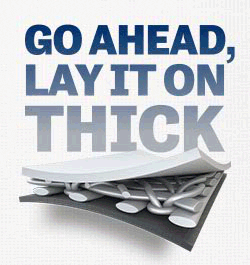

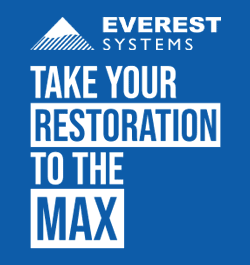


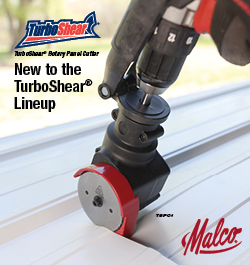







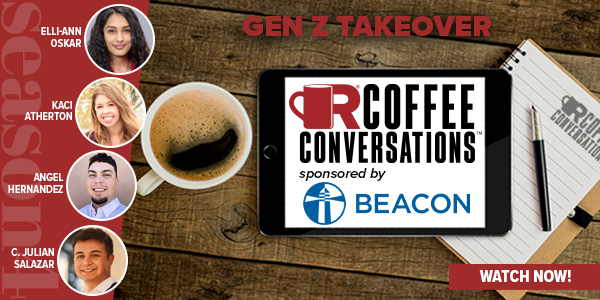
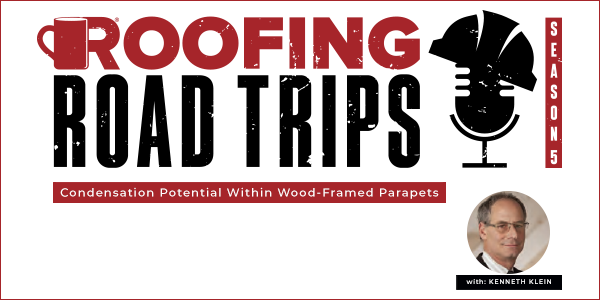
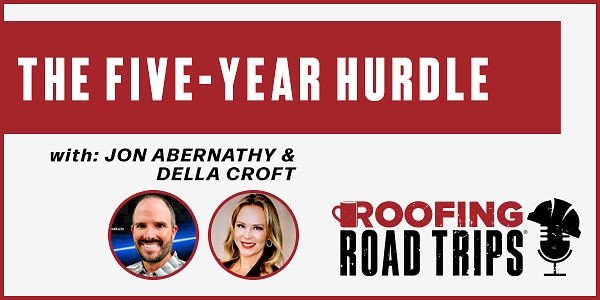
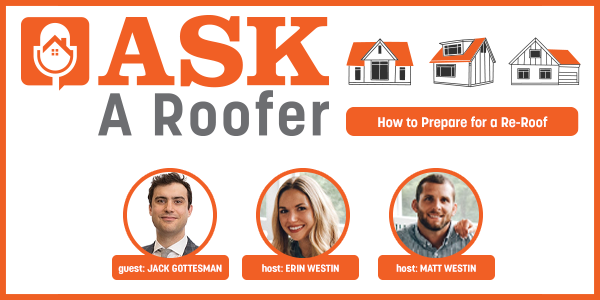

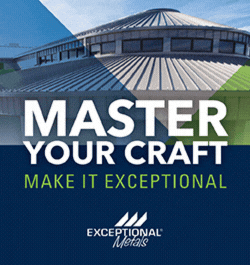



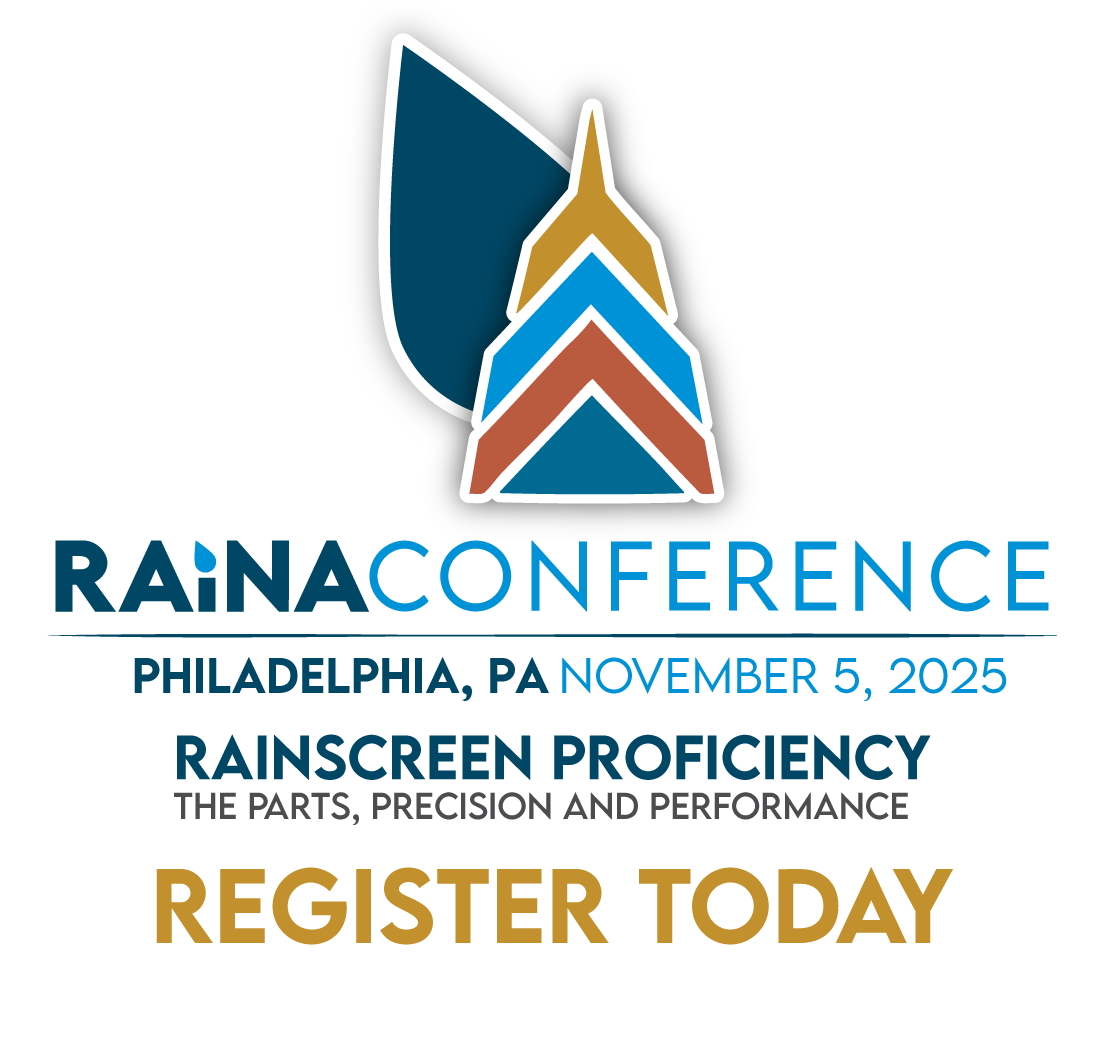
Comments
Leave a Reply
Have an account? Login to leave a comment!
Sign In